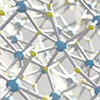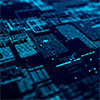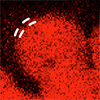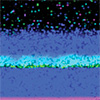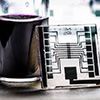Jan 22, 2024 (Nanowerk News) Scientists and engineers have been pushing for the past decade to leverage an elusive ferroelectric material called hafnium oxide, or hafnia, to usher in the next generation of computing memory. A team of researchers including the University of Rochester’s Sobhit Singh published a Proceedings of...
New candidate for universal memory is fast, low-power, stable and long-lasting
Jan 22, 2024 (Nanowerk News) We are tasking our computers with processing ever-increasing amounts of data to speed up drug discovery, improve weather and climate predictions, train artificial intelligence, and much more. To keep up with this demand, we need faster, more energy-efficient computer memory than ever before. Researchers at...
Groundbreaking discovery enables cost-effective and eco-friendly green hydrogen production
Jan 22, 2024 (Nanowerk News) A breakthrough technology has been developed that enables the production of green hydrogen in a more cost-effective and environmentally friendly manner, bringing us closer to a carbon-neutral society by replacing expensive precious metal catalysts. Led by Professor Jungki Ryu in the School of Energy and...
Trapping krypton atoms inside carbon nanotubes to form one-dimensional gas
Jan 22, 2024 (Nanowerk News) Scientists from the University of Nottingham’s School of Chemistry used advanced transmission electron microscopy (TEM) methods to capture the moment when krypton (Kr) atoms joined together, one by one, inside a carbon nanotube with diameter half a million times smaller than the width of a...
Artificial neural network hardware based on stacked neuron-synapse-neuron structural blocks
Jan 22, 2024 (Nanowerk News) With the emergence of new industries such as artificial intelligence, the Internet of Things, and machine learning, the world's leading companies are focusing on developing next-generation artificial intelligence semiconductors that can process vast amounts of data while consuming energy efficiently. Neuromorphic computing, inspired by the...
New sustainable method for creating organic semiconductors
Jan 22, 2024 (Nanowerk News) Researchers at Linköping University, Sweden, have developed a new, more environmentally friendly way to create conductive inks for use in organic electronics such as solar cells, artificial neurons, and soft sensors. The findings, published in the journal Nature Communications ("Ground-state electron transfer in all-polymer donor:acceptor...

